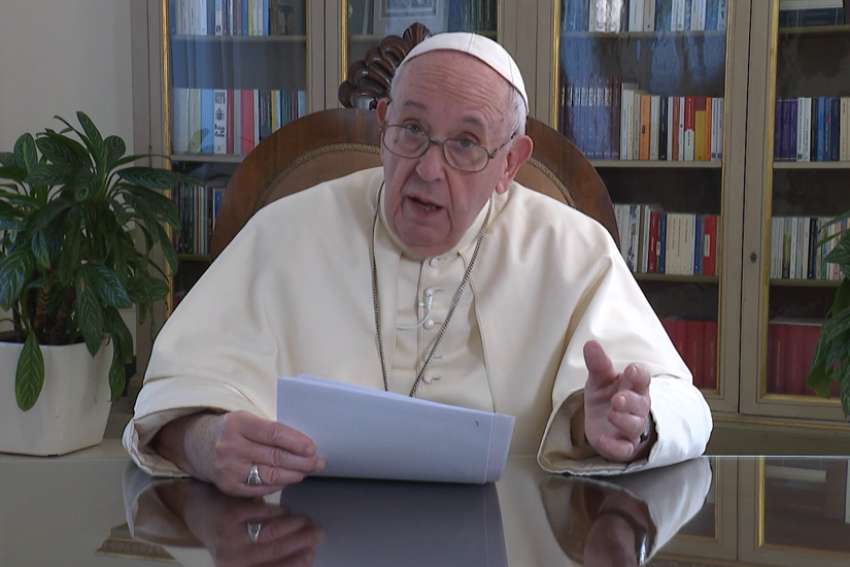Nor does desire for circumspection around phrases such as “scientific fact” support a push in the opposite direction: toward obscurantism or the Holy Father getting on board with any of the many woo-woo conspiracy theories swirling around us.
In the past week alone, we’ve witnessed the confirmation of U.S. Supreme Court Justice Amy Coney Barrett being turned by smug secularists into caricaturing Catholicism as a species of primitivism and know-nothingness. Great hard work has occurred over past centuries to confirm the faith as entirely compatible with contemporary methods of inquiry, obviously including the scientific method itself.
Alas, his words delivered Oct. 10 to a TEDx Countdown on climate change imparted urgency by neglecting a very necessary specificity between science as a method and its translation into public policy.
“Science tells us, every day more precisely, that we need to act urgently — I am not exaggerating — this is what science tells us, if we are to have any hope of avoiding radical and catastrophic climate change,” Pope Francis was quoted by the Catholic News Service. “This is a scientific fact.”
At the risk of being Pecksniffian, the boiling point of water is a scientific fact. What exists around climate change is a scientific consensus, which is a distinction with a difference.
In fairness, Pope Francis did emphasize the necessity of a stepby- step approach, but did so in the context of “responding to the cry of the poor and the cry of the Earth” simultaneously. Both are perfectly valid Christian callings. But do we know with factual certainty that they are necessarily compatible? And if it is “science” that we’re invoking, what has the former to do with counting quasars in an expanding universe? With due respect, something seems to have been smuggled into the meaning of the word fact in order to support a pre-determined course of action.
It is not a trivial act. As with climate change, we’ve witnessed such malleability over the past seven months of the pandemic. Repeatedly, what was gospel yesterday is unfortunate error today. The scientific facts, errr, consensuses, around dealing with COVID-19 argued initially for lockdowns as our armour against its spread. A replacement consensus now emerges that lockdowns were misguided at best, lethally destructive at worst.
It is feckless, both scientifically and humanely, to blame those who advocated for the actions they believed best. But it underscores the peril of overemphasizing “scientific fact” as the ne plus ultra of public, political, policy response.
In a brilliant essay recently published by American Affairs journal, Edward R. Dougherty shows why the peril is present in scientific method, and what we now reflexively call “science” itself. It is, Dougherty writes in “Science Without Validation in a World Without Meaning,” a matter of the entirely different languages “science” and “policy” speak. To put it simply, science speaks math. Policy speaks pictures. If, as someone once said, poetry is what gets lost in translation, transformation of math to pictorial meaning loses what “scientific fact” means.
Or as Dougherty, holder of an endowed chair and Distinguished Professor of Electrical Engineering at Texas A&M University, says bluntly: “If the meaning of the subject matter cannot be conceived in terms of ordinary categories of understanding, and cannot be expressed in ordinary human language, then how can leaders untrained in mathematics and scientific epistemology make informed decisions?”
Compound that with the infinite complexity of data points related to, say, climate and pandemic and it becomes clear why Dougherty’s call is for a “new epistemology” of science to be put at the authentic service of public policy and public good. Perhaps that is a service that a Jesuit pope with a Master’s degree in chemistry might consider.
(Stockland is publisher of Convivium.ca and a senior fellow with Cardus.)


